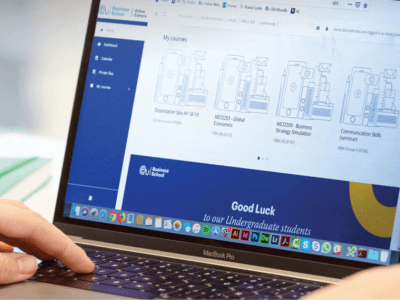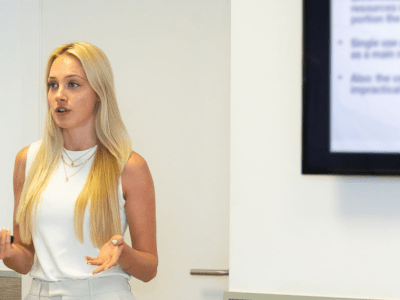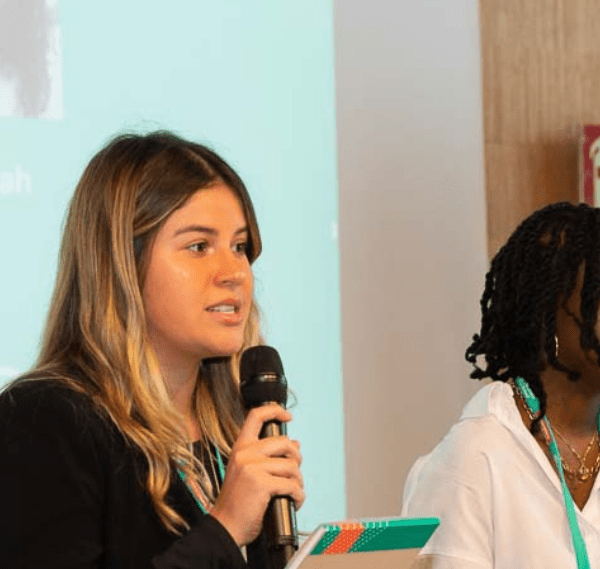10 Successful Women-owned Business Pivots During the Pandemic
When the pandemic hit, businesses scrambled to adapt to what was being called “the new normal.” Women-owned businesses were disproportionately affected because they were concentrated in some of the most impacted sector, such as retail, catering and beauty. According to a survey by American Express, more than 4 in 10 female small- to medium-sized business owners had to pivot their business model to continue making money during the pandemic.
What Does it Mean to Pivot?
When a business pivots, it undergoes a fundamental change of direction, usually in response to the realization that the current products or services on offer are unsuitable for the needs of the market.
In the context of COVID-19, many businesses were forced to rethink their approach because their typical services couldn’t be accessed, or because they suffered decreased demand due to social isolation measures.
Some made alterations to their pre-existing products and services so they better fit the changed circumstances of their customer base. Others transformed on a larger scale, launching brand new products and services.
What Signifies a Successful Pivot?
The most obvious evidence that a pivot has been successful is that the company has survived, maintained revenue or even grown during the pandemic. However, there are other measures of achievement.
Companies that have increased awareness of their brand or generated goodwill from the public through their charitable contributions could also be seen as having performed a successful pivot. The impact of this with regards to later business success is yet to be determined.
Women-Owned Businesses That Pivoted During the Pandemic
1. Aunt Flow
Aunt Flow used tosell organic menstrual products directly to companies who stocked them in their bathrooms. When everyone started telecommuting demand decreased and Aunt Flow switched its focus from menstrual products to PPE. At one point, the company was producing 100,000 face masks per day in a factory in China.
CEO Claire Coder has said that this transition was made easier by the fact that they already had significant experience working with medical devices and within FDA regulations. The company’s fundamental mission remains unaltered: ensuring everyone has access to basic, quality necessities.
2. Kids Test Kitchen
Founded in 2013 by dietitian Emily Seward, the original model of Kids Test Kitchen was based on offering children in-person classes that focused on cooking and nutrition.
During the pandemic, this business took advantage of an increased focus on health as well as the fact that parents were looking for diverse recreational and educational activities for their children to participate in from home. Having transitioned to online classes, Kids Test Kitchen has actually enjoyed increased growth since schools closed.
3. Locker Lifestyle
The founder of Locker Lifestyle, Kat Samardzija, won the 2019 WBENC Pitch Competition with her line of wearable wrist wallets and pocket headbands. She applied the ingenuity required to win this contest to achieve a successful business pivot when the pandemic hit.
In response to the complaints of frontline workers about ear irritation caused by prolonged facemask use, she made alterations to her signature headbands and created comfortable supports for them to wear at work.
4. GMI Group
GMI Group is a woman-owned janitorial company that provides cleaning services throughout the Southeastern region of the U.S.A.
It has pivoted from this exclusively service-based model to include the distribution of antimicrobial agents, which are proven to be effective in preventing the spread of COVID-19. Their 100% green-certified hand sanitizer has been particularly popular. They’ve also developed a specific “COVID-19 Decon” service in which they deep clean and disinfect spaces, leaving them 99.9% germ-free.
5. InTandem
InTandem, a branding and promotions company builds brand connections through promotional products. When office workers began telecommuting, CEO Sara Webb saw an opportunity to assist companies in maintaining positive relationships from a safe distance.
Her business has pivoted to building “work from home kits” that include blue-light blockers, yoga mats and earbuds, and they’ve also designed a system for companies to send thank you gifts to partners, clients and employees. Most recently, InTandem has made “welcome back” kits for companies that are returning to in-person working; these kits include sanitizer and other safety supplies for the office environment.
6. P.volve
When the pandemic began, fitness studios like those of P.volve were forced to close. However, there was an increased demand for services that supported indoor workouts, since people were spending more time at home than ever before.
P.volve switched its focus to its online subscription service, which has seen a 160% increase in sign ups since March 2020. CEO Rachel Katzman credits this success to the fact that the P.volve workouts only require a small space and use easily accessible equipment. This means that they translate well to the house when customers can’t attend studio classes.
7. Bluelene
Jasmin El-Kordi, the CEO of Bluelene, realized quickly at the start of the pandemic that hand sanitizer was becoming difficult to find. Through her anti-ageing skincare company she launched a moisturizing hand sanitizer that became so popular it has been permanently incorporated into Bluelene’s product line.
Instead of using spas to promote products, Bluelene has reassigned its marketing budget to advertise on online platforms. The company has taken advantage of the increased spotlight on health during the pandemic to release scientific skincare information and so grow its own visibility as a brand.
8. The New Black Studio
The New Black Studio is a London-based corporate event management business run by CEO Rebecca Brennan-Brown. She saw demand for her usual services evaporate overnight when social isolation measures were introduced in England.
However, the company has survived thanks to the creation of their “Event in a Box,” which represented a fundamental pivot for the company, moving it from a service-based business to a product-selling one. This was successful because it provided a solution for corporations whose teams were unable to meet up in person despite needing team- and morale-building events more than ever before.
9. Secret Sunrise
Secret Sunrise is another company that previously handled in-person corporate events. Before the pandemic, they were known for large-scale silent discos which were popular with businesses who sought original events for their employees.
During the pandemic, it has moved online to provide Zoom sessions that include mindfulness, exercises and teamwork. This shift has attracted new, high-profile corporate clients to the company.
10. Sparrho
Sparrho is a business that makes science accessible by curating, aggregating and summarizing the latest scientific research.
Led by CEO Dr. Vivian Chan, Sparrho has developed a Coronavirus-specific program which is designed to provide the public with reliable information and so combat the spread of fake news about the virus.










